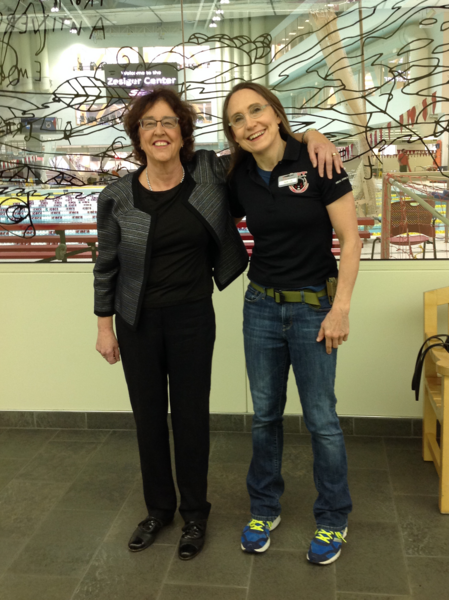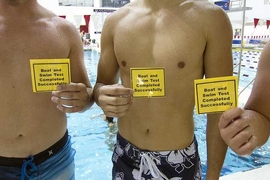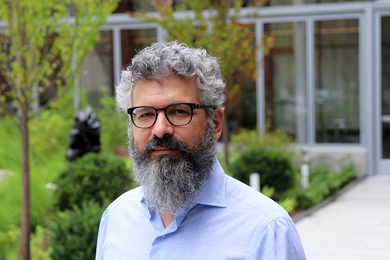“Can you teach an uncoordinated old lady to swim?”
“I can teach anyone to swim.”
This was the question and answer, respectively, from Lita Nelsen ’64, SM ’66, SM ’79 and MIT private swim instructor Betty Lou McClanahan. Nelsen was one of only 22 women in her graduating class at MIT and finished as the top student in Course 10 (chemical engineering). She also earned two master degrees at MIT, one in chemical engineering and the other through the Sloan Fellows program. Nelsen spent two decades working on biotechnology for several prominent companies. In 1986, she joined MIT’s Technology Licensing Office and became director in 1993, a position she still holds. Nelsen is also well-published on the subject of technology transfer and is a highly-regarded figure in the field. Despite these prodigious accomplishments, she still joshes that she is an "illegal" graduate of MIT. Why? Nelsen never passed her student-swim requirement.
To be fair, at that point in MIT history, women were not required to fulfill the physical-education requirements expected of their male peers. Regardless, Nelsen established the goal of passing her MIT swim test before her upcoming MIT 50th class reunion this past year. To do so, Nelsen sought the instruction of McClanahan, an instructor with MIT Recreational Sports, whose approach of breaking the task into discrete parts and doing many repetitions was especially helpful to Nelsen.
Though she was an avid participant in the MIT Outdoor Club, Nelsen did not feel that physical education was important during her tenure as an MIT student. However, in retrospect she thinks it is very valuable for two reasons. First, it promotes skill-set development that extends beyond graduation. Nelsen described how her husband, also an MIT graduate, took up sailing with no prior experience, became a national champion, and sails to this day. Nelsen also articulated that the worth of physical education goes beyond learning physical skills. “It’s play,” she says. “I think the variety of stuff at DAPER [Department of Athletics, Physical Education, and Recreation] allows people to do a lot of experimentation. You don’t have to get an ‘A’. Find out what you like and what you are good at with a lighter touch. Experiment. Try different things. It’s fun.” Nelsen finds value in doing an activity to simply enjoy the process rather than to achieve something, and believes this mindset would benefit high-achieving outcome-oriented MIT students, especially at an institution with a history of celebrating and respecting amateurism.
Nelsen offered additional pieces of advice for MIT students, especially women entering a male-dominated profession of engineering:
“Do what you really like, because if you’re here you’re certainly smart enough to do whatever you like well. You’re going to do what you really like better.”
“Fear of failure is a handicap. Find a way to get over it.”
“Find a mentor that gives you perspective — not just encouragement, but the perspective that you need to build a career.”
“Yes, you can combine career and family. You’ve just got to do it, and the first step of doing it is finding the right partner.”
Nelsen achieved her goal of passing the MIT swim test by her 50th reunion in June 2014. She called up the Office of the Bursar and the director of physical education to make sure that her official MIT transcript was updated to, “passed swim requirement.” Now, just like an MIT student, she has already moved on to conquering the next challenge: the flip turn.








